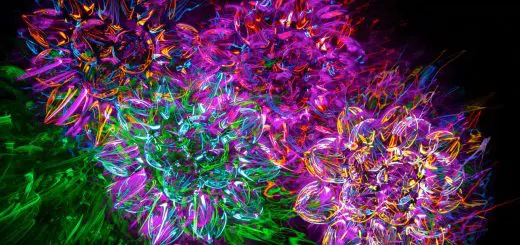Zhuangzi’s Philosophy: Living Naturally

Looking for more amazing products? Check out our online store and explore our collection here! Happy shopping!
Before diving in, please note: This post is for informational purposes only. If you’d like to know more about how we approach topics, feel free to check out our friendly Disclaimer Page.
Hey there, amazing readers! 
We’re committed to delivering quality posts, and your support (even just sticking around despite the ads) means everything to us. So, bear with us, and thanks for helping us keep the good vibes rolling. Now, on to the fun stuff!
TRANSLATE BUTTON AT THE END OF THE ARTICLE
Introduction to Zhuangzi’s Philosophy
Zhuangzi, also known as Chuang Tzu, was an influential Chinese philosopher who lived in the 4th century BCE during the Warring States period.
His philosophy, often associated with Daoism, emphasizes living in harmony with nature and cultivating a sense of naturalness in one’s life.
Zhuangzi’s teachings focus on embracing spontaneity, finding inner freedom, and letting go of attachments to achieve happiness and peace.
His ideas have had a profound impact on Chinese thought and continue to resonate with people seeking a deeper understanding of the natural world.
Understanding Naturalness in Zhuangzi’s Teachings
In Zhuangzi’s philosophy, naturalness refers to living in accordance with the Dao, the fundamental principle that underlies all existence.
Naturalness involves embracing the rhythms of nature, accepting the changes and uncertainties of life, and aligning oneself with the flow of the universe.
Zhuangzi believed that by living naturally, individuals could find inner peace, contentment, and a sense of harmony with the world around them.
Naturalness is not about passivity or inaction but rather about being attuned to the spontaneity and fluidity of life.
Principles of Living Naturally in Zhuangzi’s Philosophy
Zhuangzi’s philosophy offers several key principles for living naturally.
These include:
Embracing spontaneity and allowing things to unfold organically.
Cultivating inner freedom by letting go of attachments and desires.
Finding happiness and contentment in simplicity and humility.
Practicing Wu Wei, or effortless action, by acting in harmony with the Dao.
Balancing individualism and social harmony by being true to oneself while respecting others.
By following these principles, individuals can live authentically, find peace within themselves, and create a harmonious existence with the world around them.
Embracing Spontaneity: Key Concept in Zhuangzi’s Thought
One of the central ideas in Zhuangzi’s philosophy is the concept of spontaneity.
Zhuangzi believed that true freedom and authenticity come from letting go of preconceived notions, expectations, and desires, and allowing life to unfold naturally.
By embracing spontaneity, individuals can tap into their inner wisdom, creativity, and intuition, leading to a more fulfilling and enriching existence.
Spontaneity allows for a sense of flow and interconnectedness with the world, enabling individuals to navigate life’s complexities with grace and ease.
Harmony with Nature: Zhuangzi’s View on Human Life
Zhuangzi viewed human life as an integral part of the natural world, interconnected with all living beings and the universe as a whole.
He believed that by harmonizing with nature and living in accordance with the Dao, individuals could achieve a sense of peace, balance, and fulfillment.
Zhuangzi encouraged people to observe the rhythms of nature, appreciate its beauty and diversity, and cultivate a deep respect for all living creatures.
By aligning oneself with nature, individuals can find guidance, solace, and inspiration in the ever-evolving world around them.
The Art of Non-Action: Zhuangzi’s Approach to Living
Central to Zhuangzi’s philosophy is the concept of non-action, or Wu Wei, which is not about complete inactivity but rather about acting in accordance with the natural flow of things.
Non-action involves letting go of the ego, surrendering to the Dao, and allowing events to unfold without resistance.
By practicing non-action, individuals can tap into their inner wisdom, spontaneity, and creativity, leading to more authentic and meaningful actions.
Non-action is about trusting the natural order of the universe and allowing life to unfold in its own time and way.
Cultivating Inner Freedom in Zhuangzi’s Philosophy
Zhuangzi believed that true freedom comes from within, by letting go of attachments, desires, and expectations.
Inner freedom is about being content with oneself, accepting life’s uncertainties, and finding peace in the present moment.
By cultivating inner freedom, individuals can break free from the constraints of society, ego, and material possessions, and experience a profound sense of liberation and authenticity.
Inner freedom allows for a deeper connection with the self, others, and the natural world, leading to a more fulfilling and harmonious existence.
Letting Go of Attachments: Zhuangzi’s Path to Happiness
According to Zhuangzi, attachments are a source of suffering and disharmony in life.
He believed that by letting go of attachments to material possessions, social status, and personal desires, individuals could free themselves from unnecessary burdens and find true happiness.
Letting go of attachments allows for a sense of lightness, clarity, and peace within oneself, enabling individuals to live more authentically and in tune with the natural order of the universe.
By releasing attachments, individuals can open themselves up to new possibilities, experiences, and ways of being in the world.
Finding Peace in Simplicity: Zhuangzi’s Wisdom
Zhuangzi extolled the virtues of simplicity, humility, and contentment as pathways to inner peace and harmony.
He believed that by embracing a simple and uncluttered way of life, individuals could free themselves from the distractions and complexities of modern society and find tranquility within themselves.
Simplicity allows for a deeper connection with nature, a greater appreciation for life’s small pleasures, and a sense of gratitude for the gifts of the present moment.
By cultivating simplicity, individuals can find peace, joy, and fulfillment in the everyday moments of life.
Wu Wei: The Practice of Effortless Action in Zhuangzi’s Philosophy
Wu Wei, often translated as "effortless action," is a central tenet of Zhuangzi’s philosophy that emphasizes acting in alignment with the natural flow of the universe.
Wu Wei is not about inaction or laziness but rather about acting spontaneously, intuitively, and harmoniously with the Dao.
By practicing Wu Wei, individuals can tap into their inner wisdom, creativity, and intuition, leading to more effective and authentic actions.
Wu Wei allows for a sense of ease, grace, and fluidity in one’s endeavors, enabling individuals to achieve their goals with minimal effort and maximum impact.
Balancing Individualism and Social Harmony in Zhuangzi’s Teachings
Zhuangzi believed in the importance of balancing individualism with social harmony to create a more peaceful and harmonious society.
He advocated for being true to oneself, following one’s own path, and cultivating inner freedom, while also respecting others, honoring social norms, and contributing to the well-being of the community.
By finding a balance between individual desires and collective needs, individuals can live authentically, connect with others on a deeper level, and create a more compassionate and inclusive world.
Zhuangzi’s teachings encourage a harmonious coexistence between the self and society, fostering mutual respect, understanding, and cooperation.
Applying Zhuangzi’s Philosophy to Modern Life: Practical Tips
While Zhuangzi lived in a different time and culture, his philosophy of living naturally can still offer valuable insights and guidance for modern individuals seeking a more harmonious and fulfilling existence.
Here are some practical tips for applying Zhuangzi’s teachings to everyday life:
Embrace spontaneity and allow life to unfold organically.
Cultivate inner freedom by letting go of attachments and desires.
Practice non-action by trusting the natural flow of events.
Find peace in simplicity by decluttering your life and focusing on what truly matters.
Practice Wu Wei by acting in alignment with your true nature and the rhythms of the universe.
Balance individual needs with social harmony by respecting others and contributing to the well-being of your community.
By incorporating these principles into your daily life, you can experience a greater sense of peace, authenticity, and harmony, and cultivate a deeper connection with yourself, others, and the natural world.
Conclusion
Zhuangzi’s philosophy of living naturally offers a profound and timeless wisdom that can help individuals navigate the complexities of modern life with grace, ease, and authenticity.
By embracing spontaneity, cultivating inner freedom, letting go of attachments, and finding peace in simplicity, individuals can experience a deeper sense of harmony, fulfillment, and contentment.
Zhuangzi’s teachings remind us of the importance of aligning ourselves with the rhythms of nature, trusting the natural flow of events, and finding joy in the present moment.
By applying Zhuangzi’s philosophy to our lives, we can unlock the secrets to a more meaningful, peaceful, and harmonious existence.

The Enlightenment Journey is a remarkable collection of writings authored by a distinguished group of experts in the fields of spirituality, new age, and esoteric knowledge.
This anthology features a diverse assembly of well-experienced authors who bring their profound insights and credible perspectives to the forefront.
Each contributor possesses a wealth of knowledge and wisdom, making them authorities in their respective domains.
Together, they offer readers a transformative journey into the realms of spiritual growth, self-discovery, and esoteric enlightenment.
The Enlightenment Journey is a testament to the collective expertise of these luminaries, providing readers with a rich tapestry of ideas and information to illuminate their spiritual path.
Our Diverse Expertise
While our primary focus is on spirituality and esotericism, we are equally passionate about exploring a wide range of other topics and niches 

To ensure we provide the most accurate and valuable insights, we collaborate with trusted experts in their respective domains 
Our blog originally focused on spirituality and metaphysics, but we’ve since expanded to cover a wide range of niches. Don’t worry—we continue to publish a lot of articles on spirituality! Frequently visit our blog to explore our diverse content and stay tuned for more insightful reads.
Hey there, amazing reader! 
Check out our store here and take a peek at some of our featured products below! Thanks for being awesome!











